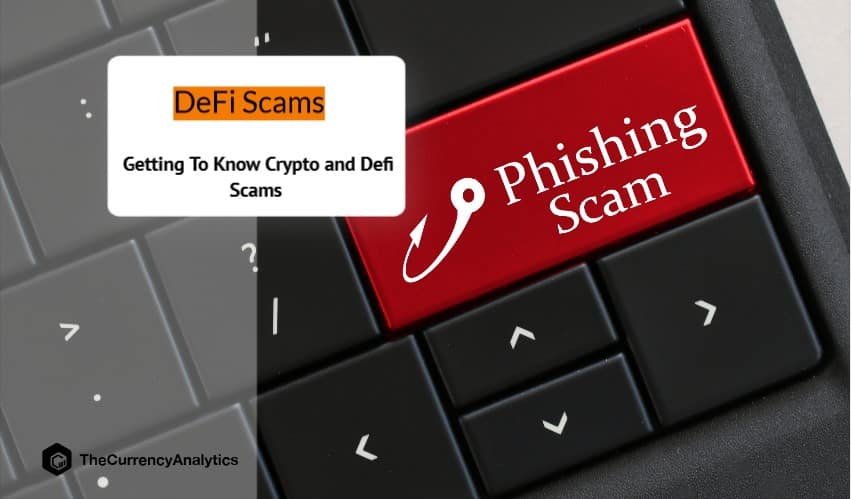
It is important to beware of DeFi Scams. Decentralized finance (DeFi) definitely represents a revolutionary next step in terms of finance. However, DeFi’s innovations come with their own downsides. The industry is full of cryptocurrency scams, Bitcoin (BTC) fraud, blockchain scams and other wallet-threatening scenarios.
Getting To Know Crypto and Defi Scams
It is impossible to prevent cryptocurrency fraud and theft throughout the industry. However, it helps to get to know the common scams which every DeFi trader might probably come across at some point in time.
The common types of DeFi Scams are: 1. A rug pull. 2. Social media scams. 3. Phishing scams
A rug pull happens when the developers of the cryptocurrency or the project manipulate a token’s perceived worth and then abandon the project, while taking investor funds with them.
Social media scams are the next major types. Particularly, in twitter, there are a greater number of scam accounts. These scammers reach out to crypto enthusiasts proposing their new project and they land up stating they have giveaways. They also require the user to send a certain amount of money to a particular address. Thus, users will be able to check if these accounts are legitimate by considering factors like followers, page authority, and error free pages.
Phishing scams is a scam tactic that is as old as the internet. This is one where scammers pretend to be legitimate companies and gather personal info about their victims. The scammer will make up an error such as “your account has been compromised. Send over your email and password so we can secure it.” Such tactics will also ask for wallet addresses and passwords, or sometimes it will require the victim to send over the funds.
How to prevent falling for phishing blockchain scams? Always check the contact’s email address. Often, the email will be full of random characters instead of an actual website name. Do not click on a link in a suspicious seeming email. For example, ensuring the URL has an https security certificate and that the URL is spelled perfectly correct.
Basic security measures to follow when taking to cryptocurrency or Defi is to follow some basic methodologies.
Two-factor authentication (2FA) 2FA is a security method that sends a text or email to a verified account, and this authentication will be needed are a user enters the password. This way, even if a bad actor gains access to one’s password, they’d need access to a mobile device or email to actually break into an account.
Use a hardware wallet. The Hardware wallets are external devices in which users can store their private keys. As the DeFi space develops, more decentralized applications (DApps) are becoming compatible with hardware wallets, meaning users can store their assets in a secure space while still easily accessing their DeFi platforms of choice.
Investigate in the community: Successful DeFi projects often cultivate a fruitful community full of active users and developers who communicate back and forth. If there’s a project with inactive or quiet developers, they may be planning a rug pull or other type of scam.



Get the latest Crypto & Blockchain News in your inbox.